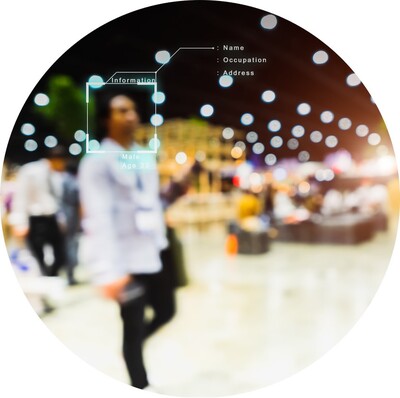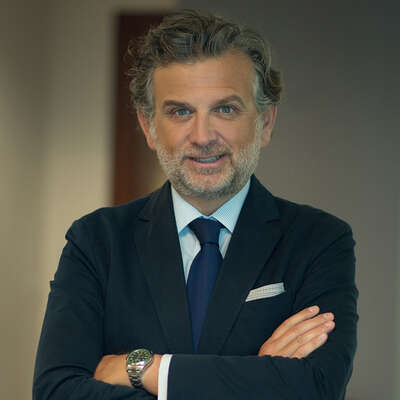Perspectives from Boyden's Consumer Digital Experts
As the grip of COVID-19 continues to have a global impact, Boyden is tapping into the deep collective knowledge base of our partners to bring industry insights and prescriptive learnings to the forefront.
In this issue of Resilient Leadership, Boyden shares the expert opinions of our consumer digital leaders from across the globe: Eduardo Rabassa (United States), Dina Akimova (Russia), and Victor Filamor (China & Singapore).
In conversation with Boyden’s Global Consumer & Retail Practice Leader, Cornelia Tänzler (Switzerland), the group explores drivers of digital solutions, shifts in consumer values and expectations, emerging opportunities, and the evolving leadership skillset to deliver.
Tänzler: The digital experience is now a must-have to compete as consumer behaviours have rapidly changed, clearly demonstrating accelerated demand for, and use of, digital consumer solutions. What further developments can we expect to see in the consumer digital space?

Akimova: Consumers expect a highly personalized approach in terms of marketing, product proposition, quick delivery and moreover, customer service. More brands will step into augmented reality to deliver on the experience. Subscription services will continue to grow. At the same time, omnichannel becomes more important with the understanding that online stores cannot completely replace offline stores, and vice versa. Strong customer focus will drive strategy, especially with offline stores, where customers will seek emotions and unique experiences.
Filamor: CPG companies own much consumer data. The issue is that the data is not always accessible, easy to analyse, or used to generate the right insights. Enhancements in the use of AI will enable companies to use consumer data effectively and facilitate faster and better decisions, allowing companies to level up their online revenues versus offline by driving innovation and personalized products and experiences for the consumer, and by driving the right execution in the digital space, e.g. listing with the right ecommerce aggregators with the right SKUs, visibility, how reviews are tracked and actioned, as well as the ease in shopping for a brand.
Rabassa: We all need to understand that this crisis has had a clear ally: technology. Thanks to digitalization we have maintained most of our meetings, received our groceries at home, and kept education active. Many of these tools will see significant improvement, but they did play an important role during a critical time. Consumer digitalization will continue in a non-stop evolution, but this does not mean all former channels will disappear.
Tänzler: From supply chain, software development, return policies and more, expectations for a reliable digital consumer experience have seen a tremendous surge. Were organizations prepared to handle this rapid change? Where might they have experienced gaps?

Rabassa: Companies adopted new systems, plans and policies to meet the digital consumer surge in the midst of the crisis. Nobody was prepared, and all have experienced gaps, but much less than expected given that our world experienced lockdown measures and restrictions like never before. Unexpected measures and burdens of meeting consumer demand and even finding new ways to serve customers proved difficult, but many lessons have been learned. This crisis advanced our systems and quickly indicated where changes are needed.
Filamor: Most companies would have wanted to have a better grasp on digitalization in the past year, but steering a big company through accelerated digital transformation is like steering a big ship amidst rough seas. Companies experienced gaps on change, adaptation, and the speed necessary to digitalize their entire organizations. Strategic roadmaps and new structures have to be created, the right talent has to be on board, and teams have to learn to work in new and agile ways.
Akimova: Given all this rapid change, companies should focus even more on the employee experience, as customer centricity will only be effective with motivated and innovative teams, especially in terms of existing generational gaps.
Tänzler: Consumer values and priorities are evolving. What are organizations and leaders doing to build consumer trust?
Filamor: Having purpose and values to speak about, then enabling a one-to-one connection with the consumer relevant to her local community. Airlines engage digitally in a one-to-one dialogue with their consumers about health and hygiene protocols, digital health passports, touchless payments, and customer care. CPG companies’ new product development (NPD) funnels are moving from products that are “fun for you” to those that are “good for you.” Additionally, several companies and retailers are assessing how blockchain can be brought into the consumer world to trace products back to their origins.
Akimova: Recent research from Sprout Social reports that 86% of consumers want brands to be honest, and 83% say they want them to be friendly, in their communications on social media. Platforms like Facebook, Instagram and Twitter provide brands with an invaluable platform to foster good relations with their consumers. Staying true to your company’s values will be a significant trend to keep on top of. Many companies grew customer trust during the pandemic with innovative and agile customer appreciation communications, initiatives, and adjustments. Long term, ESG for example is become a higher business priority in order to align with customer expectations and values.
Rabassa: The key factor is, more than ever, to be reliable. If you promise 24 hours for receiving food at home, you need to deliver on time. If you communicate “shopping in a safe environment”, you need to be in the vanguard of safety and cleanliness, and if you sell fresh air in a plane every two minutes, you need to show how you do it. I have seen huge efforts on this matter.
Tänzler: Given this opportunity for redesign and transformation, what functional leaders will be in high demand?

Akimova: As the quantity and quality of digital assets is growing rapidly, strengthening cybersecurity will be critical. We’ll also see growth and evolution across HR, where the focus shifts from a compensation and benefits approach to one that is value based, employee centric, and fosters culture. CDOs with strong business acumen will be in strong need, and of course due to growing complexity and new strategic challenges, there will new pressures and expectation of CEOs that will result in more replacements.
Filamor: Consumer centricity is clearly key, so brand builders will continue to be needed. Revenue growth management, digital transformation and sustainability-related roles will be in high demand. Organizations are becoming flatter, so in terms of competencies, companies will require executives who possess the ability to lead horizontally, with strong collaboration and team coaching orientations. They need to be commercially astute. More than ever, today’s leaders must have a tolerance for high levels of ambiguity. They need to be flexible, adaptable, and agile – the roles they play today may change in six months.
Rabassa: The pandemic has identified two types of leaders: those focused on finding solutions and team engagement, and those that lead with fear, allowing their lack of team trust to prevail while focusing on the problem instead of a solution. There is a clear winner amongst the two, and those leaders will remain in high demand.
Tänzler: Many leadership lessons will be learned from the pandemic. What do you feel will be one of those top lessons?
Rabassa: There is a lot of respect and admiration for those leaders who kept their teams engaged amidst such uncertainty and change. Communication has always been important, but in a digital world it is a must. It is now elevated to a critical skill across all functions.
Filamor: I would add that self-care and one’s support systems need to play important roles in a leader’s daily life. A leader can only be complete – be a role model and live the new competencies we discussed – when all axes, mental, physical and emotional, are balanced. During COVID, many leaders realized that they could take breaks during their workday to help their kids with schoolwork or spend quality time with their loved ones. We learned that frequent traveling is not a must. Work and life can be better managed so that one does not compromise the other.
Akimova: A clear lesson is the importance of having a strong and motivated team in place that can self-organize and adapt to support CEOs in these difficult times. The value of that cannot be underestimated.






